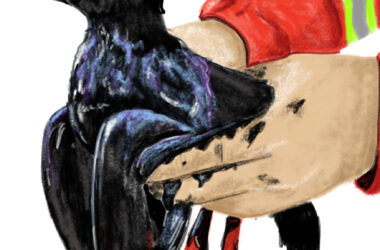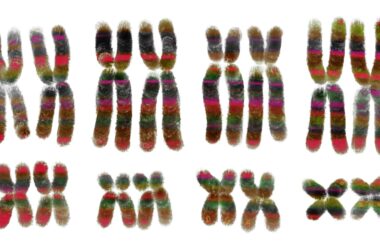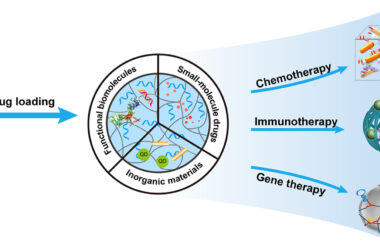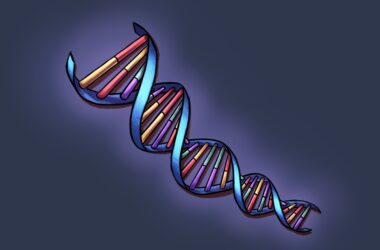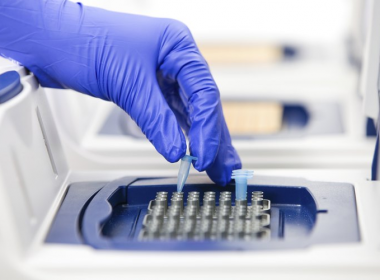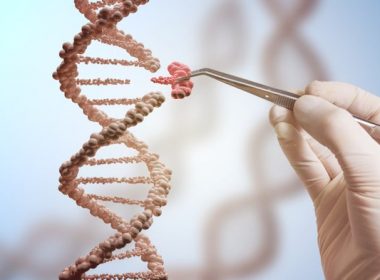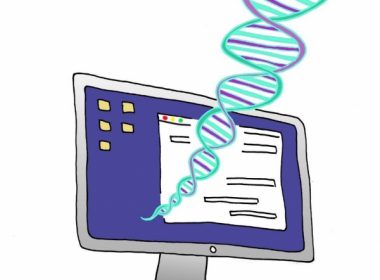The effects of climate change are increasingly visible around the world, but nowhere are these impacts more observable than in the Arctic. The region’s temperature is rising at over two times the global average—a phenomenon that has devastating impacts on natural ecosystems. As the ice melts, it destroys natural habitats,[Read More…]
Tag: DNA
When a DNA test doesn’t go the way you expected…
Imagine taking what appears to be a harmless DNA ancestry test, expecting to uncover more information about your heritage, only to be met with the discovery that your assumed parent is not biologically related to you. Direct-to-consumer DNA tests—such as those provided by 23AndMe and Ancestry—typically provide three pieces of[Read More…]
Stiffer DNA hydrogels open new paths for biomedical applications
Besides acting as the backbone of genetic material, DNA is getting significant attention for being a versatile building block of nanomaterials—particles one-thousandth of the diameter of a hair strand—including a type of nanomaterial called DNA hydrogels. As a rising star in the field of nanoengineering, which is the study of[Read More…]
The glowing DNA that can act as protein motion sensors
In the methodical world of scientific research, there is irony to be found in serendipitous stories of discovery. More often than expected, a scientist’s day in the lab is filled with more head-scratching than “eureka” moments. It is in these moments that a curious scientist would dig deeper, even in[Read More…]
Seeing double: An overview of cloning, past and present
The scientific tool of cloning, which allows humans to duplicate organisms, has soared since the birth of first-ever mammalian clone Dolly the sheep. But how has this now commonplace discipline evolved, and where might it head in the future? Scientists must continue to grapple with the ethics of such a[Read More…]
PCR: The unlikely hero of the COVID-19 pandemic
Since the invention of the polymerase chain reaction (PCR) technique by Kary Mullis in 1985, scientists have taken for granted the ability to make millions of DNA copies. Despite being hailed as a groundbreaking technology at the time, its spotlight was stolen in 2013 by CRISPR, a precise gene editing[Read More…]
From the Brainstem: The ethics of gene editing
Since the discovery of the structure of DNA in 1953, society has debated whether our understanding of human biology might one day be our downfall. These debates progressed through the transgenic mice and in vitro fertilization of the ‘70s, DNA copying of the ‘80s, viral gene delivery and cloned sheep[Read More…]
Removing the barriers for genetic data sharing
The emerging field of computational genomics, which uses statistical analysis to unpack the plethora of information harboured inside the human genome, is complicated. The sheer amount of data that comprises the human genome is massive. Meanwhile, the pressure is high: With more people turning to their genes for answers to[Read More…]
Tracking ‘Jaws’
Many lives could have been saved in the movie Jaws if only the town had an effective way of tracking the shark terrorizing their waters. Analysis of environmental DNA, or eDNA, is a revolutionary new technique that enables scientists to follow marine animals, no matter their size. eDNA refers to the genetic material,[Read More…]
Reaching the limits of the human lifespan
The longest any human being has ever lived was 122 years. Jeanne Calment of France, who rode a bicycle until age 100, passed away in 1997. Since then, no one has been recorded to live past 120 years. A paper published in the Oct. 2016 issue of Nature claims to have[Read More…]
